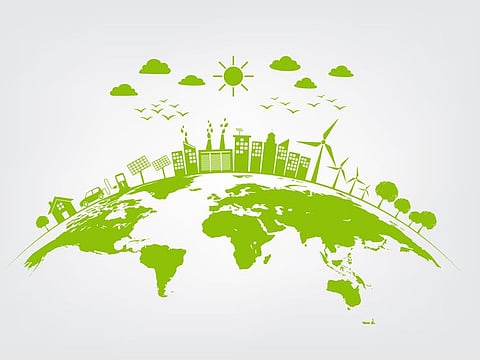Businesses finally get to have some real ESG standards to live up to
Investors are holding up businesses to higher ESG standards – and promises will not cut it

The secret is out. Environmental, Social and Governance (ESG) investments hold significant potential for GCC markets. The pace of adoption has been astonishing.
The Dubai Financial Market launched its ESG index in 2020. Abu Dhabi Global Market launched its sustainable finance initiative last year. The Abu Dhabi sovereign wealth fund, Mubadala, established a responsible investment arm in 2021. Saudi Arabia’s Public Investment Fund (PIF) uses ESG to consider investment strategies. And 46 per cent of CEOs in the Middle East are aiming to increase ESG investments over the coming three years.
The Pandora’s box of ESG investment is open. That’s good news for the region. ESG investments not only contribute toward the long-term energy transition. They are also increasingly lucrative. Research indicates that ESG assets may hit $53 trillion – by 2025. It is a sector that continues to accelerate.
Yet, amid this frothy market activity, there come potential pitfalls. Scrutiny has increased on how ESG-friendly investment houses are spending their dollars. The cynicism of how committed big banks are to the net-zero transition is intensifying. Sustainability commitments are being seen, in the words of Greta Thunberg, as more ‘blah blah blah’.
Challenges in ESG ranking
Classifying ESG investments in 2022 is complex. There is an absence of global, mandatory sustainable reporting standards. Companies may set net-zero targets or outline an ESG strategy. Yet, their level of disclosure can vary. Further, they may use wildly different metrics to report success.
Imagine choosing a car to buy. One salesperson tells you the car’s mileage and miles per gallon. A second tells you the horsepower of the engine and the number of cylinders. And a third tells you the car’s colour and how many cupholders it has. Based on this information, how can you choose the right car for you?
Currently, choosing between ESG investments can feel like being this confused automobile acquirer.
Sustainable reporting standards
In this context comes the International Financial Reporting Standards Foundation (IFRS). On March 31, they published two draft standards. They tackle sustainability-related financial information and climate disclosures.
Both seek to bring the foggy world of ESG up to speed with more rigorous financial measures. The draft standards came days after proposed rules from the US Securities and Exchange Commission (SEC) for climate related disclosures.
Standards such as these are only good news. Having a more stringent regulatory ESG environment will allow better-informed financial decision-making. It will allow investors to assess sustainable assets like-for-like. And, it will make clear who the high-performers – and the laggards – in the industry are.
GCC opportunities
The UAE has demonstrated its commitment to implementing robust sustainable finance standards. The country’s Securities and Commodities Authority issued requirements for ESG disclosures in 2020. Companies listed in Dubai and Abu Dhabi must report ESG figures, in line with standards set by the Global Reporting Institute.
The standards set out by the IFRS are only in draft for now. But the message is clear. Be it the development of these standards, regulation from the SEC, the EU - or UAE - taxonomy, regulation is coming. The ESG market, valued at $35 trillion today, will have an increased level of scrutiny.
That is an opportunity for GCC markets. In maintaining and setting best-in-class reporting practice, regional markets can attract global investors. That itself will tie into national strategies across the region. Enhanced market liquidity. Stronger performing corporate profiles. And, of course – continuing to be a global leader in the climate transition.
Sign up for the Daily Briefing
Get the latest news and updates straight to your inbox



